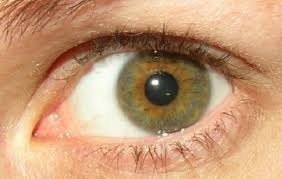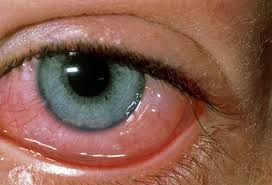What is Dry Eye?
 Dry Eye refers to a condition that results due to inadequate or ineffective wetting and lubrication of the eye. It primarily occurs due to reduction in quality or quantity of the tears and tear film. With increase in the use of computers, this condition is becoming more prevalent and is known by the name of Computer Vision Syndrome.
Dry Eye refers to a condition that results due to inadequate or ineffective wetting and lubrication of the eye. It primarily occurs due to reduction in quality or quantity of the tears and tear film. With increase in the use of computers, this condition is becoming more prevalent and is known by the name of Computer Vision Syndrome.
What are the symptoms of Dry Eye?
Dry eye commonly presents as the following problems:
- Burning sensation in the eyes
- Grittiness & foreign body like feeling in the eye
- Irritation in the form of itching & stinging
- Redness of the eye
- Sensitivity to light
- Decreased tolerance to contact lenses
- Blurred vision that improves on blinking
- Excess watering of the eye
- Mucus discharge from the eye
- Increased eye discomfort on reading, watching TV, sewing, working on a computer etc.

Are there any known causes for Dry Eye?
Causes for dry eye can be broadly categorised as follows:-
-
-
- Natural Aging Process as we grow older, there is areduction in the production of natural tears and their effectiveness.
- Environmental Conditions such as hot, dry or windy climate, air pollution, air conditioning, dusty or smoky atmosphere, over heated rooms etc.
- Occupational – working on computers for long periods of time, results in less blinking thus leading to eye strain and dry eye.
- Systemic Diseases – such as Sjogren’s Syndrome, Rheumatoid Arthritis, Systemic Sclerosis, Thyroid conditions, Steven Johnson Syndrome.
- Hormonal Changes – like during menopause.
- Medication Side Effects – diuretics, antihistamines, anti depressants, antimuscarinics are known to cause dry eye.
- Vitamin A Deficiency
- Prolonged Contact Lens use
- Radiation Therapy of the head and neck
- Refractive Eye Surgery such as LASIK and PRK
- Eye Trauma
- Frequent Air Travel
- Infections and certain eye diseases such as Blepharitis.
- Personal Habits such as smoking, reduced blinking thus leading to excess tear evaporation etc.
-
-
Will Dry Eyes harm my vision?
If treated, dry eye will not harm your vision. However, if the condition is left untreated, it may damage eye tissue and scar the cornea leading to vision impairment. For those who use contact lenses, the condition can result in poor tolerability & discomfort. This can greatly increase the chances of eye infection.
What is the management of dry eye?
- Avoid being in dry atmosphere for long periods of time. If you have to, use a humidifier.
- Avoid direct blast of heaters and air conditioners at face level.
- Sit away from direct heat such as furnace fires, gas etc.
- Use lubricating eye drops such as artificial tears.
- Make a conscious effort to blink regularly with full lid closure and not ‘half blinks’
- Avoid smoky atmosphere
- Drink 8-10 glasses of water daily
- Avoid smoking
- Use wrap around glasses and sunglasses when outdoors.
In order to relieve acute episodes, use periodic cold, moist compresses to decrease burning & itching.
What is the effect of computers on the eye?
- Keep a minimum distance of 25 inches between the computer screen and the eye, preferably more.
- The monitor top should be tilted away from the eyes.
- Use dark letters on a light background
- Keep the screen below the horizontal eye level.
- Always use a chair with arms. Tilting the head forward causes less fatigue than the head-erect posture.
- Use indirect lighting suspended from the ceiling. Use curtains to avoid reflection due to outside light.
- Avoid direct flow of air on your eyes. Low humidity or fumes also can lead to dry eyes.
- Give your eyes a break every 20 minutes. Blink regularly. Close the eyelids and roll the eyes behind the closed lids clockwise and anti-clockwise.
- Consult a doctor immediately if you have any problem.
We have facilities for Punctal Plugs and amniotic membrane grafting
Dry Eye
